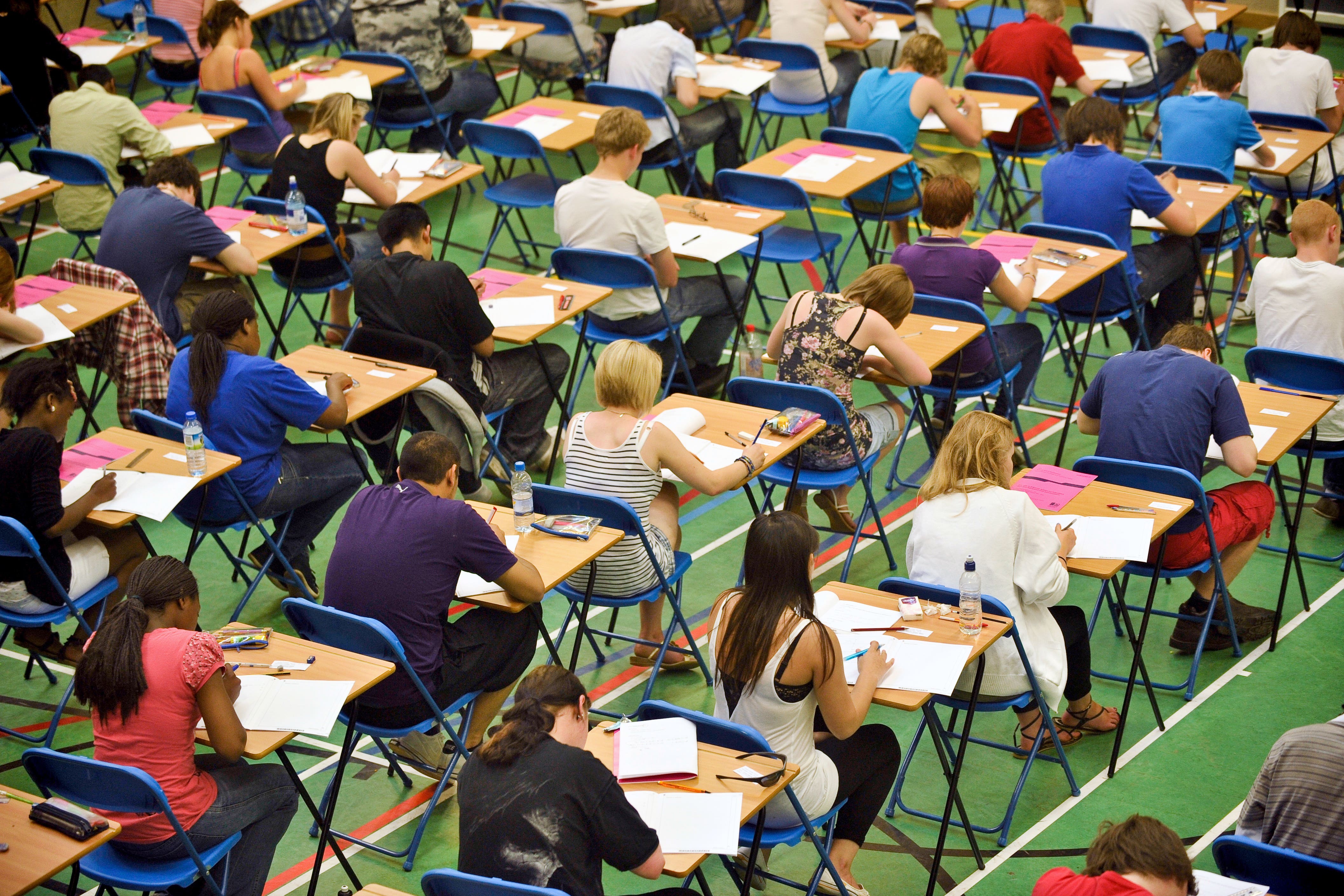Pupils in England could sit digital GCSE exams from 2026 under proposals
On-screen assessments are more inclusive and environmentally sustainable, a report by England’s largest exam board suggests.

Pupils in England could be assessed digitally in some of their GCSE and A-level exams under proposals.
AQA, the biggest exam board for GCSEs and A-levels in England, is aiming to roll out on-screen exams over a period of years and it hopes that students will sit at least one major subject digitally by 2030.
The reading and listening components of GCSE Italian and Polish – subject to regulatory approval – would be the first to move to digital exams in 2026, according to the proposals by the exam board.
Our ambition is that students will sit a large-entry subject – that means, in our case, hundreds of thousands of simultaneous exams – digitally by 2030
A report by AQA said that the first exams will largely replicate the existing paper exams on screen, but it said there is much potential for “more innovative and interactive assessment” in the longer term.
Digital exams help prepare young people for the digital world, are more inclusive, more “environmentally sustainable”, develop digital skills and are what young people want, according to the report.
It added: “We will not do away with traditional pen and paper exams in a rush, and anticipate an exam system where some components of some GCSE or A-level courses are delivered in a paper-based manner and other components are digitally delivered.”
Students’ devices will be offline in the exam hall and they will not be able to search for information on the internet, nor will they be able to access artificial intelligence (AI) tools, the exam board said.
The proposals come after AQA has spent years piloting digital exams.
Colin Hughes, chief executive of AQA, said: “Technology and change are two constants in education. After all, we went from quills to fountain pens to biros, and from scrolls to books. Moving to digital exams is the next step of this evolution.
“We cannot and should not change the way we conduct exams overnight. AQA has spent several years trialling and piloting digital exams and we will roll them out over many years.
“Our ambition is that students will sit a large-entry subject – that means, in our case, hundreds of thousands of simultaneous exams – digitally by 2030.
“In the meantime, we’ll continue to talk to teachers, school leaders and exams officers about how they want to make these changes. The benefits are substantial.”
Our current system is becoming increasingly outdated, and at GCSE results in students taking a vast number of terminal pen-and-paper exams
Earlier this year, the OCR exam board also piloted digital exams in UK schools.
In a policy document published this month, which set out plans to introduce a single qualification which will eventually replace A-levels and T-levels, the Department for Education (DfE) said it would work with the sector and experts to “look again” at the type and format of GCSE exams needed at age 16.
It said it would consider whether it can “adopt digital solutions, such as on-screen assessment” to allow performance to be assessed in “more innovative and less onerous ways”.
Tom Middlehurst, curriculum, assessment and inspection specialist at the Association of School and College Leaders (ASCL), said: “It is very encouraging that exam boards are continuing to explore ways of moving towards digital exams.
“Our current system is becoming increasingly outdated, and at GCSE results in students taking a vast number of terminal pen-and-paper exams.”
He added: “While a digital approach has many benefits, it is imperative that it comes with proper investment in educational technology that ensures all students are given equal access to the devices they will use in exams.
“Otherwise, this approach risks favouring students who have greater access to technology at home and could inadvertently increase the disadvantage gap.”
Bookmark popover
Removed from bookmarks